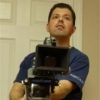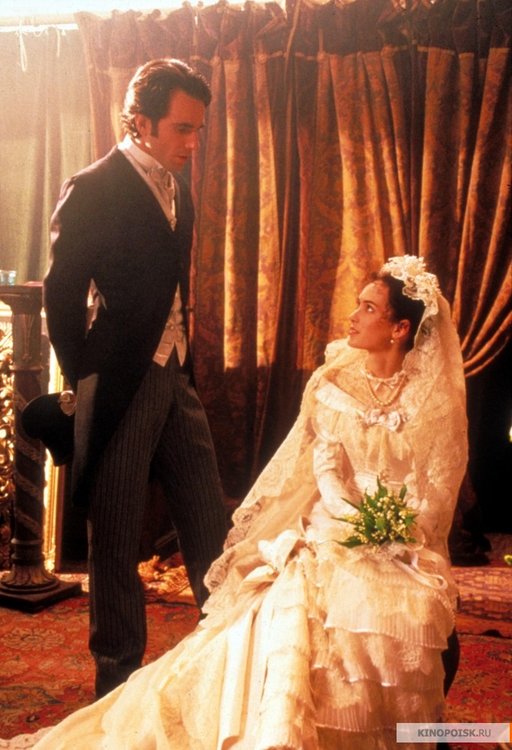-
Posts
2,369 -
Joined
-
Last visited
Everything posted by Bill DiPietra
-
Black & white cinematography became an aesthetic choice a very long time ago. I agree with everyone who said that you should be focusing on the films of the 60s (and on.) You could write multiple papers on Ingmar Bergman's films alone, but then you still have Fellini, Kurosawa, Truffaut, Godard and American films like The Hustler (1961,) Days of Wine and Roses (1962,) Paper Moon (1973) and many more. Are you committed to "black & white films of the last twenty years" or can you still change the parameters? Because even if your films span 1995 - 2015, that still excludes a film like Schindler's List since it was released in 1993. And that's probably the best example of outstanding B&W cinematography in recent times. In the last twenty years, I just can't think of many B&W films that were made, never mind worthy of academic analysis. Right now, the only one I can think of is Ida (2013.) I think your overall idea is great - the scope is just too narrow.
-

Best way to clean filters without smearing?
Bill DiPietra replied to Bradley Stearn's topic in Lenses & Lens Accessories
Provided they are only smudges this stuff works for me every time: Purosol fluid Magic cleaner -
Totally disagree. You have a great reel and two things are taking away from it: 1) the fact that the music has lyrics and, 2) the two instances where you allow the dialogue from the respective films to come onto the main audio track. It begins to feel like a music video when you do that. Your reel can stand on its own, so let it.
-
Not at all. Whatever it was shot on, I think it's pretty good work for a 12 year-old...
-
Very nice! Was that shot on film? Certainly looks like it...
-

The Nest (part I)
Bill DiPietra replied to roberto de la torre's topic in In Production / Behind the Scenes
Very impressive! Looked very filmic. -

Are distributors interested in short films?
Bill DiPietra replied to Patrick Cooper's topic in General Discussion
Most of us grew up with the 3-act structure. I've been writing short stories using that method since I was a kid. And no one ever questioned its validity. Yes, to you. That's the key phrase, here. And I say you are incorrect because you are. As others pointed out, the length of a short film can vary from festival to festival (which is where you usually see them,) but I was referring more to genres. Short films can encompass a plethora of genres, not just narrative. Now, it's absolutely fine to have your own definition of what a short film should be. But when you start talking as if your standards in this case should be treated as the rule instead of the exception ("where does this information come from? Where is your source that I am incorrect?",) you need to remember that this is merely your opinion. I doubt schools stopped telling the 3-act structure. It's more likely that today's students believe they can learn all they need to learn off of nofilmschool.com or other online sources. I agree with you on this point. I had great teachers in high-school and college who taught creative writing & film. College is where I learned to really analyze narrative films and it was only enhanced when I went to grad school. I began to examine a number of different media theories, including Joseph Campbell's "Hero's Journey," which is at the heart of every engaging story. These theories - combined with a full understanding of the importance of the visual components - have produced many classic, narrative films that also have elements of abstraction to them. In other words, the spectator actually has to do some thinking. My point is that, to grow as an artist, one must eventually move beyond what you learned in school and start thinking outside-the-box. That doesn't mean you suddenly become an experimental film-maker. But taking a look at something a little different every now and then will open your mind to new ideas. One of my teachers in college was an experimental film-maker and I was about as thrilled at what he screened as you currently are. But when he screened Meshes of the Afternoon, I saw there was something to that genre. If you are more concerned about turning a profit, then yes - the narrative genre is definitely your best bet. But it's just disturbing to see that you have such a provincial view about film-making at such a young age. -

Are distributors interested in short films?
Bill DiPietra replied to Patrick Cooper's topic in General Discussion
I think experimental film-makers like Maya Deren, Stan Brakhage, Kenneth Anger & Chantal Akerman - people who influenced many famous, "narrative" film-makers (like Scorsese, for one) - would differ with you. Quite incorrect. Short films come in all shapes and sizes - not just in the narrative genre. The avant-garde has contributed to the artistic discussion for a very long time. You could even argue that the avant-garde informed the narrative structure instead of the reverse. Ancient cave paintings, for example, really are more like abstractions. The avant-garde evolved like everything else and eventually became part of our collective consciousness (and perhaps even our collective unconscious.) Cinema would not be quite as magical as they are without it. What are you, in your late twenties? And you have this rigid a view on how much you want to expand your mind, aesthetically?... -

Why LA?
Bill DiPietra replied to John W. King's topic in Students, New Filmmakers, Film Schools and Programs
Annnnnnnnnnnnnnnnnnnnnnd twenty pages... -
Also, the first thing that comes to mind when I think of the Silent Era is tinting - not necessarily excessive grain.
- 6 replies
-
- underexposure
- push processing
-
(and 3 more)
Tagged with:
-
This works for my 16mm projector.
- 2 replies
-
- Projection Lamps
- Move
-
(and 3 more)
Tagged with:
-

Movies with great Environmental Cinematography
Bill DiPietra replied to Jack Johnson_38359's topic in General Discussion
Yup, very accurate. Karen's neighborhood is actually right at the Queens/Nassau border. And I think some exteriors were shot in my current Queens neighborhood. And yes, if you look at the framing, everything is very insular & familial - just like the old-school NYC mob did it back then. -

Movies with great Environmental Cinematography
Bill DiPietra replied to Jack Johnson_38359's topic in General Discussion
Sat - I'm curious to know what made you put GoodFellas in to the category of "Suburbia"... -

Two commercials from Sweden
Bill DiPietra replied to Sebastian Lindblad's topic in Please Critique My Work
Great work, Sebastian! Welcome and hope to see more of you, here! -

Movies with great Environmental Cinematography
Bill DiPietra replied to Jack Johnson_38359's topic in General Discussion
Definitely a great choice. For cityscapes, I would go with The French Connection (1971,) Serpico (1973,) The Taking of Pelham 1 2 3 (1974,) and Taxi Driver (1976.) As a friend of mine always says when he watches Pelham (which I love,) you can almost see the grit of the city. -

Are distributors interested in short films?
Bill DiPietra replied to Patrick Cooper's topic in General Discussion
Well-received by whom? Shorts are usually only screened at festivals. I'm sure its happened but it's definitely not the norm. -
Judging by the sophomoric nature of the questions, this feels like homework you should be doing yourself.
- 4 replies
-
- Survey. four questions
- please help
-
(and 2 more)
Tagged with:
-
Hi everyone. I recently purchased an Arriflex Super16 SR-II and I am now looking for the following accessories: -ARRI 4x4 Swing-Away Matte Box -ARRI Lightweight Support (preferably with the 15mm rods) -ARRI Hand-grip If you have any or all of these items for sale, please PM me. Thanks a lot.
-

Clothing you always wanted to show in your film?
Bill DiPietra replied to Max Field's topic in Off Topic
-

Clothing you always wanted to show in your film?
Bill DiPietra replied to Max Field's topic in Off Topic
No offense, but that kind of unmotivated storytelling is an element of what's slowly destroyed quality film-making over the years. As for costumes, I prefer subtle hues & tone (or something even more pointed) which may be more sub-textual. I've always felt that the costume should fit the character just as well as the character fits into the story. I was never a fan of throwing something into a film - costume or otherwise - unless it fit into the story. -

Are distributors interested in short films?
Bill DiPietra replied to Patrick Cooper's topic in General Discussion
Richard is correct. Back when The Sundance Channel was The Sundance Channel, you might have had a shot at that. But it's more mainstream than HBO, these days. I met the producer of the documentary Man on Wire (2008) a few years ago and she mentioned that short narrative films were a good way to get noticed at festivals, but that the short itself wouldn't do much for you. She said that having a feature-length screenplay ready to go might at least get a conversation going. But let's be honest, people with that kind of power are only going to be at the major festivals. My advice is to just sit back and enjoy the festival experience. It's pretty cool seeing your own film up on the big screen. -
That's the best advice yet, Connor. Please take heed of it. The bottom line is that you should just wait until you have a little more experience and a little more money before you make a film. As we have said, spend some time reading a few books. A good one to start with would be Cinematography, which David Mullen co-wrote. A lot of your questions will be answered.




